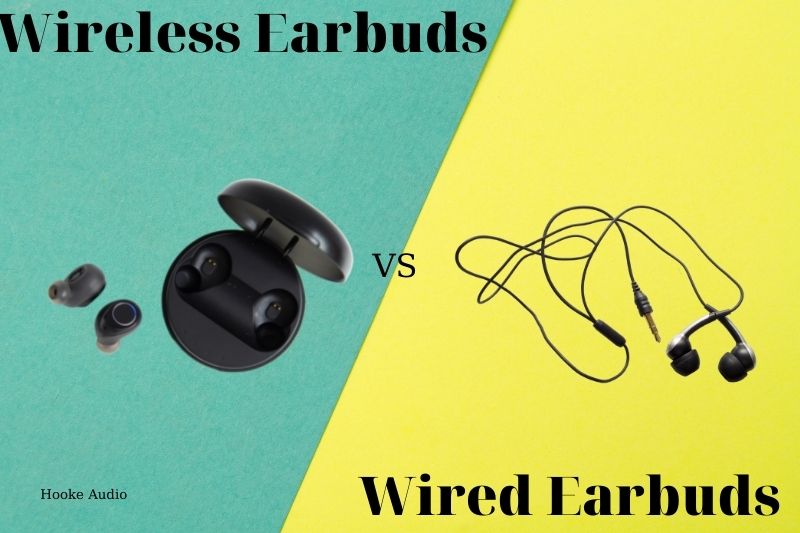- Anthony
The debate of whether wireless earbuds vs wired earbuds are better is not an easy one to answer because there are pros and cons for both.
Wired can be easier to use since there’s no need to charge them, but the wires could get in the way during workouts. There are no wires with wireless earbuds, but it can be hard to find a good link and they cost more.
If you have a busy life or work in an office, portable earbuds may be the way to go. If you listen to music at home while doing everyday tasks, a good set of wired earbuds could work just as well.
Do you want the freedom of wireless earbuds, or are you more comfortable with wired? This article will help you decide.
Contents
- 1 The Case For Wired Headphone
- 2 The Advantages Of Wired Headphone
- 3 Disadvantages wired headphone
- 4 The Case For Wireless Headphone
- 5 The Advantages Of Wireless Headphone
- 6 The Disadvantages Of Wireless Headphone
- 7 Which One Is Right For You?
- 8 The Right Question To Help Guide You In Your Decision-Making
- 9 Conclusion
The Case For Wired Headphone
The wired headphones function in the same manner as prominent speakers. They are small speakers that can be used for personal listening to music.
To transmit sound from the device, they use headphone jacks or plugs. The most popular types of headphones plugs are the TRS, TRRS, and TRRRS.
The Advantages Of Wired Headphone
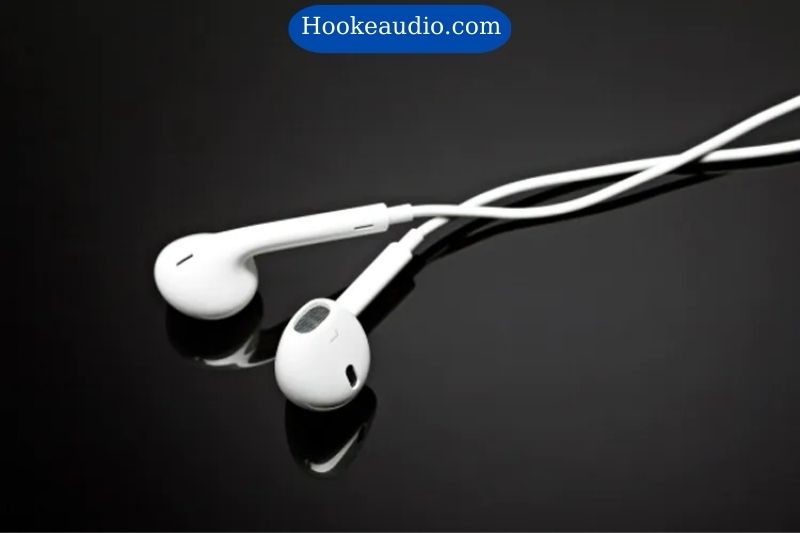
Even though wired headphones are thought to be older than wireless ones, most people still prefer them. A 2016 study found that only 17% of the 83% of headphones sold were wireless, while wired headphones could sell 83%.
There are many reasons people still prefer wired headphones. Here are some examples.
Better Sound Quality
The quality of wireless headphones has improved significantly over the years. However, wired headphones offer superior audio quality.
Manufacturers of wired headphones won’t need to spend a lot on wireless technology. This lets them spend their money and time on important things, like the quality of the sound.
Wired headphones provide excellent sound quality by using analog signals. This can handle more data than digital signals such as Bluetooth.
Your audio will not need to undergo so much processing to reach you. They can also skip audio compression to deliver your audio in its full resolution.
Easy To Fix And Less Expensive
Wireless headphone are more expensive than wired ones. Wireless technology is more costly to create and manufacture. Wireless headphones are also easier to fix.
There are simple solutions for frayed or damaged headphone wires. Replacement parts for wired headphones can also be found at a lower cost and are more readily available.
However, the price of wireless headphones vs wired headphones will depend on the brand and quality of the headphones. Wireless headphones may be cheaper than wired headphones.
Unlimited Playtime
Standard wired headphone have passive speakers that produce high-quality audio signals. These headphones don’t require an external power source. Audio signals can power the headphone. There is no need to charge the headphone or use batteries.
You’re good to go as long as your headphone are connected to your audio source.
But active noise-canceling headphones need a steady power source to block out background noise. Even though they are wired, the headphones still require batteries.
Easy-to-use
Wired headphones are easy to use because you can just plug them into your music player. It can be plugged into any audio device immediately.
They are immune to unwanted wireless interferences or pairing problems. They are undoubtedly more user-friendly than wireless ones, considering all these factors.
Disadvantages wired headphone
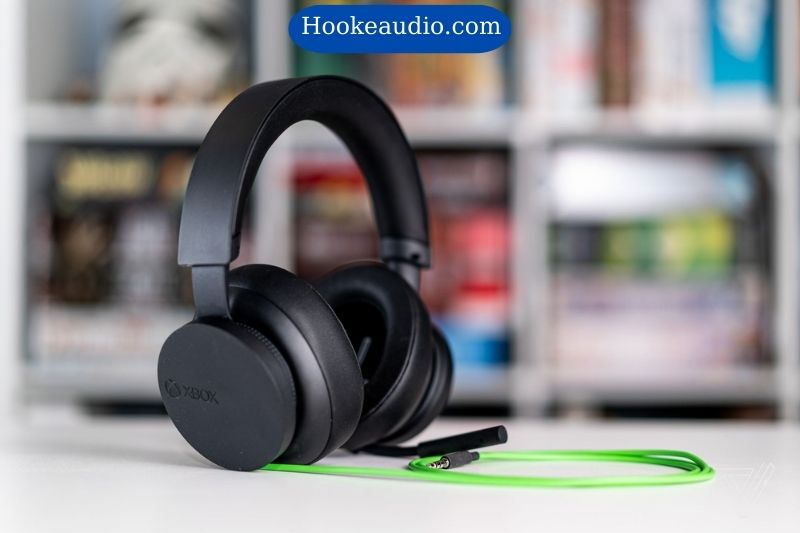
There are some drawbacks to wired headphone, despite all their benefits. Here are their main disadvantages.
Can Limit Movement
It is not difficult to see how wires can limit users’ movement. To avoid tripping wires, users must limit their movements. Users are also tied to their audio source.
Headphone owners who are wired can purchase headphone wire extensions to get around this issue. The length of these cord extensions varies. Gamers, in particular, can choose the length that suits their needs.
Untangling knotted wires can be difficult. It can also take a lot of time. If you aren’t careful, fraying can occur from trying to untangle the wires.
Wires May Be Fragile
The wires of headphones are often fragile and thin. They can be damaged by tugging or pulling on them unintentionally, and even short circuits. This can cause headphones to stop working, and it can be frustrating.
If the wires are damaged, your headphone may not work correctly on one ear or produce static sounds. But don’t panic! You can find headphone repair hacks to fix this problem.
It’s better to have headphones that can be replaced than those with fragile wires. Before you spend a lot of money on a new pair of headphones, think about whether or not the price is worth it.
Compatibility
All modern audio gadgets have used the 3.5mm headphone jack for a long time. Nowadays, brands use different types of plugs or none at all. This is the case with iPhone’s latest models, including a lightning USB charging port and a lightning USB headset.
You may need an adapter to fit your headphone plug if your cable and port are not compatible. Although this is a fast solution, not everyone will appreciate the extra costs.
Sometimes, a PC has two separate headphone jacks for audio and mic. If your headset only has one plug, this could cause compatibility issues. To solve this problem, you can purchase headset splitters.
The Case For Wireless Headphone
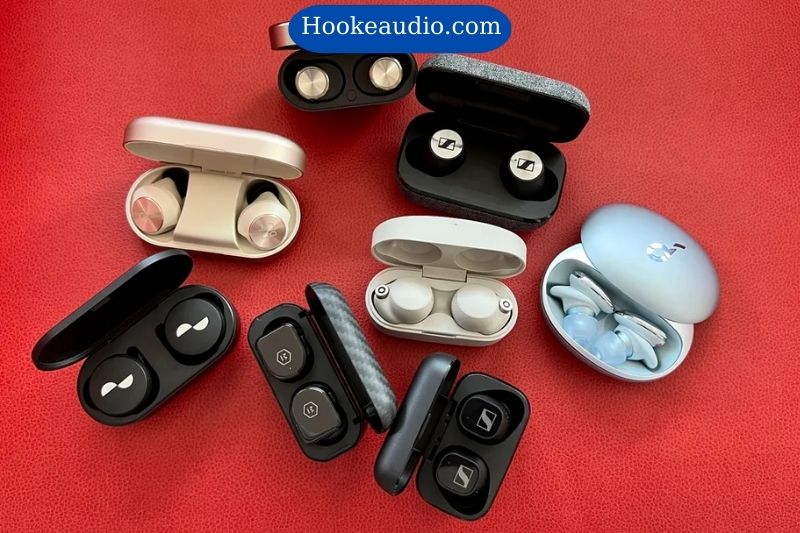
Wireless headphones transmit audio data using radio transmission technology. Three technologies are used to transmit audio data in headphones:
- Bluetooth
- Radio Frequency (RF), or
- Infrared Frequency
An audio device compresses audio data for Bluetooth transmission. The data is then transmitted to the headphones using radio waves. This data is then decoded by the headphone and converted into an audio signal via Bluetooth codecs.
Bluetooth technology has evolved to many different versions. Bluetooth 5.2 is the most recent version. This version has a more excellent range of up to 220m and lower power consumption.
Stereo frequency modulation is used in RF technology. To receive audio from an audio device, RF headphones use electromagnetic signals. It has a stronger signal and a more extended range than Bluetooth.
Wireless headphones that are specifically designed for TV use RF more often than wireless headphones. The range can reach up to 300 feet, depending on the headphones.
Lastly, audio signals can be transmitted using line-of-sight technology in IF transmissions. This technology allows audio signals to be transmitted without interference. They must be within ‘line of sight of one another, as the name suggests. This technology is also used in headphone, microwaves, and FM radios.
The Advantages Of Wireless Headphone
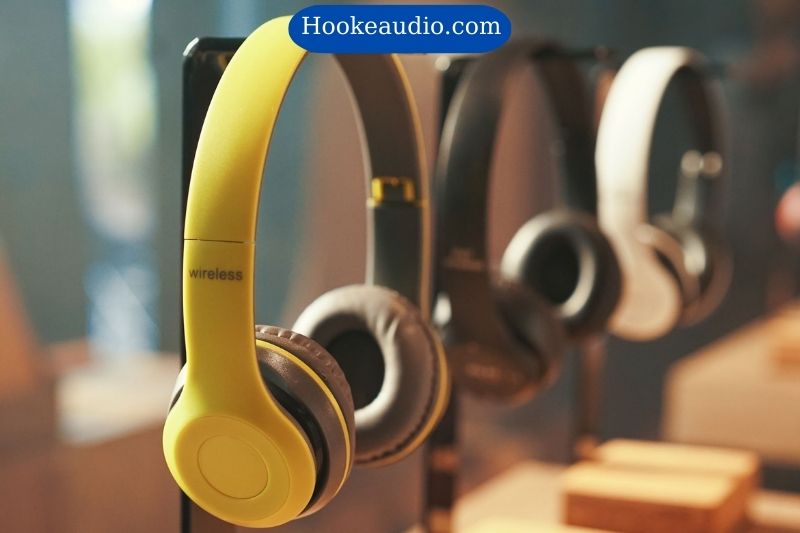
Today’s manufacturers are constantly looking for new ways to combine technology and comfort. It’s no surprise that everything is going wireless. Game controllers and headphones, for example, are moving to be completely wire-free. It’s easy to see why.
Here are some reasons to choose wireless headphone.
Freedom Of Movement
Wireless headphones allow for an extensive range of movement. They also allow you to move around without worrying about accidentally pulling the cord freely. You don’t have to take your audio source everywhere. Wireless headphones can even reach up to 100 feet from your source.
Compatible With More Modern Devices
As technology advances, smartphones, and other audio devices have begun to ditch the 3.5mm jack. Bluetooth has replaced the 3.5mm jack as the standard for audio transmission.
Wireless headphones are in high demand due to the advancement of gaming software such as virtual reality. Research shows that the market for wireless headphone will reach USD 3.41 billion by 2027.
More Portable
Wireless headphones are lighter and more portable than wired ones. The compact design of wireless headphones makes them ideal for active people.
Comfort is also affected by the lighter weight of wireless headphones. They are less likely to cause head strain and offer more comfort.
Wireless headphones can be folded, making them easy to take along on your daily commutes and travels.
No more wires
With wireless headphones, you don’t have to worry about accidentally pulling the lines.
It’s not necessary to deal with knotted wire mess again, at least for headphones. You won’t have to spend a lot of money on replacement cables if your headphone wires become damaged.
The Disadvantages Of Wireless Headphone
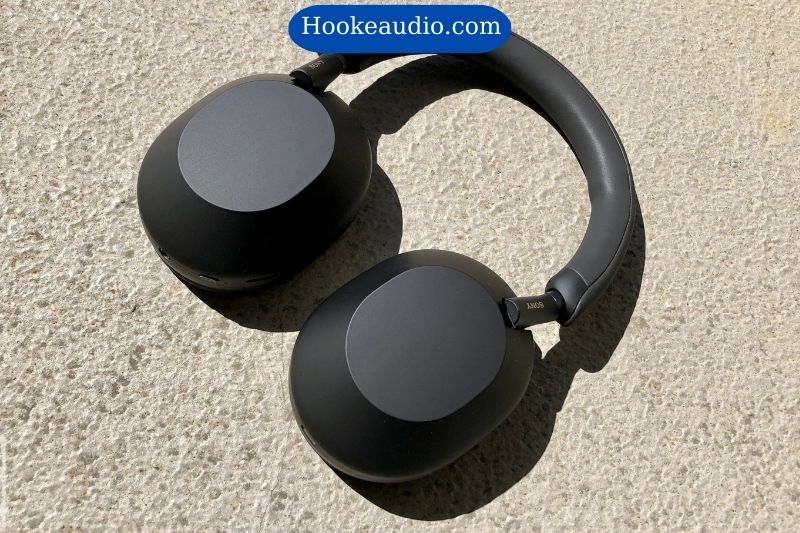
Since their inception, wireless headphones have advanced a lot. There are still some aspects that can be improved. Here are some downsides to wireless headphone.
Requires Charging
Did you ever take out your phone on a long train ride and find that the battery is low? Wireless headphones could be experiencing the same problem.
Wireless headphone need constant charging. This can prove cumbersome, especially if you are traveling for extended periods. Wireless headphones not only drain their battery but also drain the battery of the audio device. Talk about a double whammy.
Lypertek Tevi wireless earbuds can last up to 70 hours on their own. This is 10-hour battery life on the earbuds and 60 hours of battery life in the charging case.
More costly
It is not an easy task to manufacture and develop wireless technology. Getting the best form of wireless technology takes much research and testing. Wireless headphones tend to be more expensive than their wired counterparts.
You will also need a Bluetooth audio transmitter if you use Bluetooth headphones with non-compatible devices like the Nintendo Switch, Xbox One, and TV.
The brand, quality, and other features of wireless headphones will all affect the price. The average wireless headphones are considered more expensive.
Repair is complicated, if not impossible.
You can repair frayed or damaged wires in the case of wired headphones. The wireless headphone can be damaged more difficultly. The software is what has gone wrong, and the average person cannot fix it. In the case of wireless headphones vs. wired headphones, wired headphones are more repairable.
Connectivity And Pairing Issues
Good connectivity is a significant concern when using wireless headphone. Here are some critical factors for reliable wireless audio connectivity.
- Audio codecs: The decoding, compressing, and encoding of audio files are all done by these different algorithms. These codecs can affect the bandwidth, sample speed, and latency of wireless transmissions. Audio quality can be affected if audio data is lost in the decoding or coding process.
- Interferences: There may be interference between wireless devices within a narrow area. This is especially true if they use the same frequency. These include radios, microwaves, and Wi-Fi routers. Radio signals can hurt audio quality and cause audio delays/lags or even dropouts.
- Bluetooth versions: There have been many Bluetooth versions since its inception. The more advanced the Bluetooth version, the more reliable it will be.
For example, devices using Bluetooth ver. 3.0 have more significant latency. 3.0 is significantly slower than those using Bluetooth ver. 5.2 The newer versions have more features and are more efficient.
Which One Is Right For You?
This is a question that can’t be answered with a hardwired solution. Your lifestyle and the activities you use your headphones most often will determine which are best for you. Different lifestyles demand different features.
Here is a list that will help you choose the right headphones for your needs.
Who are wired headphones used for?

Office workers
No-nonsense headsets are essential for office workers, particularly those working in customer service. They should have headsets capable of delivering high-quality sound and good input. These headphones are best for those areas.
The best part is that wired headphones don’t need to be charged. It means office workers can plug it in immediately and get to work. This is much more convenient than waiting for headphones to charge.
Musicians and Audiophiles
One thing that both musicians and audiophiles have in common is that they have “well-trained ears.” They think that music should be heard the right way. They value every musical note and bass beat.
It is no secret that wired headphones produce better audio quality than wireless headphones. They can hear the difference with their trained ears. Both prefer wired headphones to wireless.
Gamers that can’t afford latency
Precision is the key to hardcore gamers. They can’t afford any level of latency, especially when playing intensely. Any sound delay could lead to them losing their position or, worse, even the game itself.
Wireless headphones are preferred by gamers who don’t tolerate sound delay. Even Bluetooth headphones with low latency can be susceptible to unexpected interferences. This is why wired headphones can be more reliable in terms of latency issues.
People on a budget
We’ve already talked about how wireless headphones cost a lot more than wired ones. The headphones may be cheaper without wireless technology.
Even if they are tight on budget, the headphones will still deliver excellent audio quality (and perhaps even better!) You can also use wired headphones.
People who prefer plug and play
Wired headphones are the best option for those who prefer simple technology. They are easy to use and have an intuitive interface that allows for wireless pairings.
Who are wireless headphones good for?

Athletes and people who lead active lives
It has been a common practice to listen to music while working out or training since the invention of headphones. Wireless headphones are fabulous for athletes and those who exercise.
Wireless headphones are lightweight and allow for unrestricted mobility. Wireless headphones are the best choice for them.
Athletes and people who work in noisy places or are constantly around noise should use wireless headphones.
You can find Bluetooth hearing protection devices on the market that make your life easier. These devices are not only good for your ears, but they also prevent wires from getting tangled up with other equipment. So, you can wear them while you work or play without having to worry about cables.
Repeated travelers
Wireless headphones are lightweight and compact, as we have already mentioned. They are ideal for frequent travelers because of these two characteristics. These headphones are portable and can be used to keep passengers entertained on long train or plane rides.
Headphones with noise-canceling features are fabulous for long rides. You can cancel out all background noise with them. They can be worn to play music, or they can be left on without any music.
Users who want more freedom of movement
Wireless headphones are more mobile than wired ones. Users of wireless headphones don’t have to worry about losing their connection if they move closer to the gadget. They experience a more immersive experience.
The Right Question To Help Guide You In Your Decision-Making

Is it all about priority? Let’s simplify the matter to sound quality or convenience. A pursuit of great sound will result in better-wired headphones than wireless headphones for a similar budget.
When headphones are needed for long commutes, working out, or long flights, convenience can be more important than sound. It is obvious how convenient it is to live wire-free.
Is there a middle way? Can a wireless headphone provide both convenience and a life-like sound with excellent audio quality? Most headphone manufacturers are currently working on this.
Audiophile brands are making headphones and in-ears that sound great and can also be used wirelessly. Emerging Bluetooth Codecs like AptxHD or LDAC allow them to transmit high-resolution audio without the need for wires.
Many brands have already released or are working on audiophile-grade wireless headphones. Many companies offer replaceable Bluetooth cables that can be paired with high-quality headphones.
The modular design of Shure SE215 headphones allows customers to choose between wired and wireless modes. Swap cables to switch to make the headphones wireless.
Bluetooth DACs paired with premium wired headphones offer the best sound quality and can be used wirelessly with phones. Maybe in the next few years, the line between sound quality and ease of use will be passed, making the perfect pair of headphones a reality.
Read more:
Best Wireless Headphone For TV
Video:
Conclusion
Many people may not be aware of the differences between wireless earbuds and wired earbuds.
Some still think that wireless earbuds are just as good as wired earbuds, but this is not true. If you want the best sounding headphones, then you need to go with wired earbuds.
If you want a low price for a set of high-quality earbuds, then wireless earbuds are the way to go. Hooke Audio recommends the only type of earbuds over wireless if you’re starting and don’t want to spend too much money on them.
So which type of earbuds are best for you? That depends on your lifestyle and what kind of features you are looking for in an earbud.

